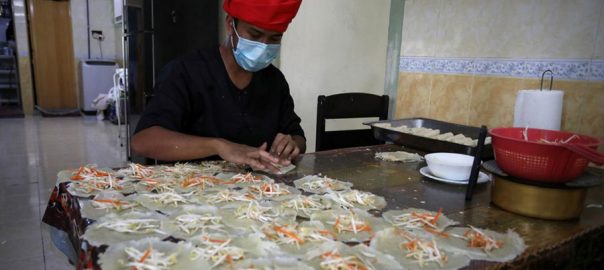×
The Standard e-Paper
Home To Bold Columnists

For 15 years, Siti Zabedah Abdul Wahab’s family food business has opened for one month a year, selling murtabak, a pan-fried bread stuffed with meat, at Malaysia’s popular Ramadan bazaars.
But this year, Murtabak Mami Murtabak Sultan started taking orders on Whatsapp and Facebook weeks before the Muslim fasting month began on April 23, as authorities across Southeast Asia called off Ramadan bazaars amid the coronavirus pandemic.